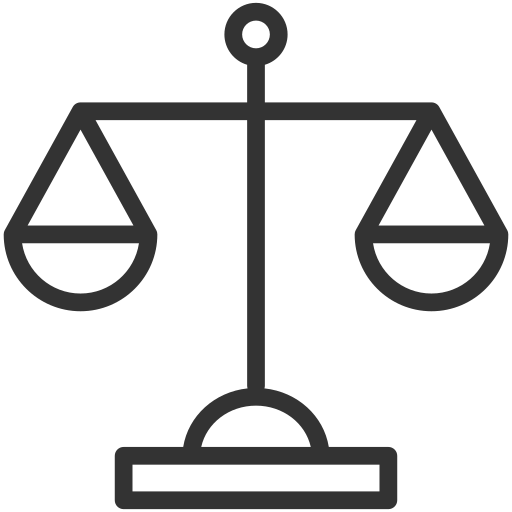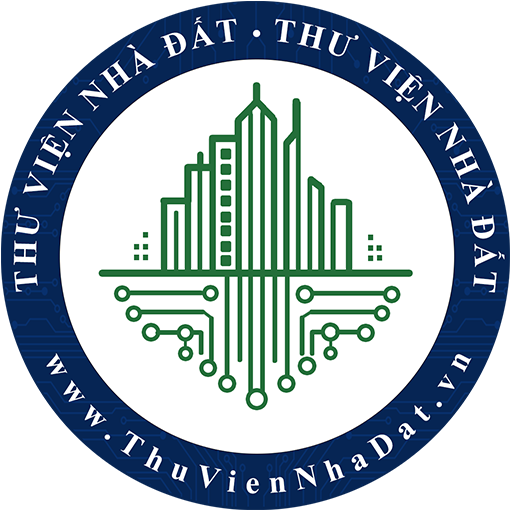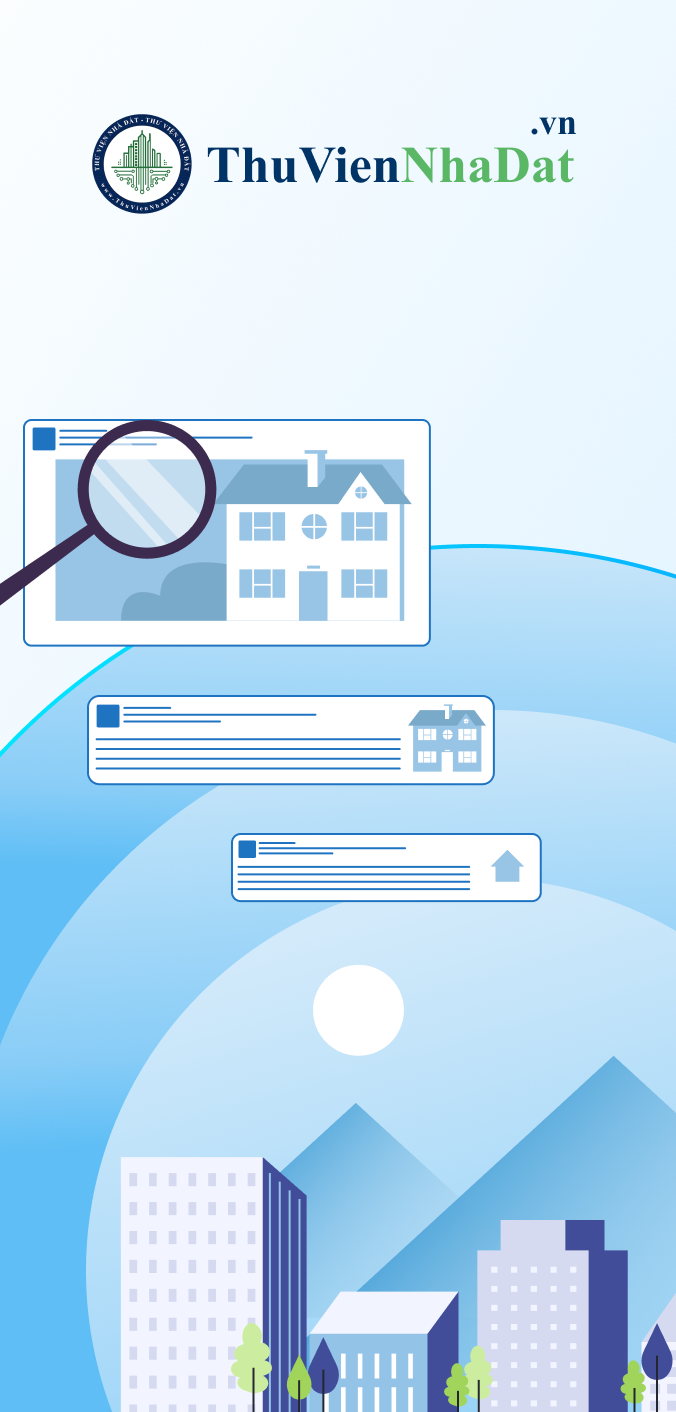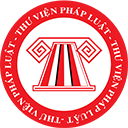|
THE GOVERNMENT |
THE SOCIALIST REPUBLIC OF VIETNAM |
|
No. 36a/NQ-CP |
Hanoi, October 14, 2015 |
THE GOVERNMENT
Pursuant to the Law on Organization of the Government dated December 25, 2001;
Implement the Government’s Resolution No. 26/NQ-CP dated April 15, 2015 on promulgating the Government's action program on implementation of the Resolution No. 36-NQ/TW dated July 01, 2014 of the Political Bureau on promoting application and development of information technology to meet requirements for sustainable development and international integration;
Implement the Government’s Resolution No. 19/NQ-CP dated March 12, 2015 on main duties and measures for improving business environment and enhancing national competitiveness in 2015 - 2016;
On the basis of the discussion among the Government members and the conclusion of the Prime Minister at the Government’s regular meeting on July, 2015,
RESOLVES:
I. ASSESSMENT OF THE SITUATION
Over the past few years, the Party and the Government have always paid much attention to the development of information technology (IT) applications, especially the application of IT to regulatory authorities. Quite a few legislative documents have been promulgated, creating a legal framework for the promotion of IT application. IT is treated as a powerful tool of development and national defense; as a significant driving force for the development of the knowledge economy, information society and enhancement of national competitiveness in the international integration; it also makes a great contribution to accelerating industrialization and modernization, thereby ensuring the rapid and sustainable development of the country.
Ministries and local authorities have proactively implemented the Directive and Resolution of the Political Bureau; resolutions and decisions of the Government, Prime Minister on promoting the development and application of IT. Most of the Ministries and local authorities establish websites/portals and apply information technology to deal with administrative procedures, shorten the time for processing documents, and reduce operating costs; increase transparency in the operation of regulatory authorities, thereby creating favorable conditions for people and enterprises.
IT has made a great contribution to the State management of ministries and local authorities, especially in the processing of administrative documents, budget management of tax, treasury, customs, social insurance, establishment of enterprises, etc. In 2015, the percentage of enterprises declaring e-tax increased from 65% to 98%; tax payment time of enterprises decreased from 537 hours per year to 167 hours per year. The implementation of e-customs procedures under the automatic customs clearance system (VNACCS/VCIS) and the national single-window system at international seaports has decreased the average cargo clearance time from 21 days to 14 days for export and 13 days for import, reducing 10-20% of the cost and 30% of clearance time for imported and exported goods of enterprises.
The promotion of IT development and application in all sectors has aided in surmounting difficulties and obstacles, thereby creating favorable conditions for people and enterprises, and enhancing the effectiveness and efficiency of the State management and corporate governance.
However, a number of Ministries, and local authorities have not really proactively implemented IT applications, provision of online public service still reveals limitations and weaknesses. Despite the fact that IT has been applied to many regulatory authorities, it remains fragmentary and lacks an integrated system. Moreover, electronic documents are not smoothly transmitted among the regulatory authorities, data is not shared and provided for general accessibility. There have existed a lot of software that were designed years ago, not upgraded, and are not user-friendly. The use of software and IT services sometimes increase the burden on officials, which actually hinders them from the enhancement of computerization.
Issuance of licenses and administrative procedures (public services) has been performed online by many Ministries and local authorities. However, many people and enterprises have encountered difficulties in using these public services that are provided by many different addresses without a unique online address. There is a lack of guidance, clear and detailed explanation as people and enterprise use public services. A number of ministries run software that does not meet actual conditions and needs of the local authorities, making it difficult to run the software licensed to serve people and enterprises.
Specialized data transfer network of the Party and regulatory authorities is connected to most communes and districts of provinces but remains at low speed and does not meet time requirements of users. Quality of Internet connection and 3G remains unstable.
Those limitations and weaknesses mainly results from unclear thinking and perception of the role and importance of IT of many levels of authorities, especially the leaders, and the implementation of tasks on IT application remains slow and lacks strong determination; a unified and unique portal is yet to be established to provide online public services and there is a lack of national information systems (especially the information system on population and land - construction) that is necessary for laying the foundations for integration and inter-connectivity; the funding provided by the State budget to the investment in IT sector have not been yet allocated in an effective manner, therefore, the implementation of plans and programs on the application of IT to the regulatory authorities fails to achieve the set progress and objectives.
Many tasks and solutions are yet to be implemented as required. A number of ministries and local authorities are yet to treat the application of IT to management and provision of public services as a key and urgent task of ministries and local authorities. According to e-Government Development Index - EGDI of the United Nations (UN) in 2014, Viet Nam was ranked 99th in the world (decreasing by 16 places compared to 2012) and stood at the 5th position in ASEAN bloc behind Singapore, Malaysia, Brunei and the Philippines. The online service index was rated low, at 0.41 points (on scale of 1), while that of Singapore and Malaysia was 0.992 and 0.677, respectively; the telecommunications infrastructure index of Vietnam was 0.38 points, while that of Singapore and Malaysia was 0.879 and 0.446, respectively.
In order to continue to promote the application of IT to the management and provision of public services and development of e-government, in three years 2015 - 2017, the Government requests ministries and local authorities to focus on implementing synchronously and effectively the following tasks and solutions:
II. OBJECTIVES AND PRINCIPAL TARGETS
1. Objectives
Promote the development of e-government, improve the quality and effectiveness of the regulatory authorities to better serve people and enterprises. Improve Vietnam’s position on e-government according to the UN ratings. Demonstrate openness and transparency towards operations of regulatory authorities in the network environment.
2. Principal targets0}
- In three years 2015 - 2017, focus on promoting administrative reform associated with strengthening application of IT to management and provision of online public services, accelerating the process of handling documents, reduce the number of, simplify, and standardize the content of documents, reduce time and expenses for following administrative procedures.
By the end of 2016, 100% of public services of central-level ministries are provided online at the level that allows users to fill and submit document templates online to agencies and organizations providing services. Transactions of document processing and service provision are carried out in the network environment. Fee payment (if any) and receipt of document results are made directly at agencies and organizations providing services (online public services at level 3).
By the end of 2016, a number of popular public services closely related to the people and enterprises are provided at level 3 and allow users to make fee payment (if any) online. The return of results can be made online, in person or by post to users (online public services at level 4).
- Comprehensively reform the three index groups including Online Service Index (OSI), Telecommunication Infrastructure Index (TII) and Human Capital Index (HCI); strive to improve the Viet Nam’s position by the end of 2016, to top 4 and by the end of 2017 to top 3 in ASEAN countries in terms of the Online Service Index (OSI) and the e-Government Development Index (EGDI) of the UN.
1. Implement solutions to improve the three index groups including Online Service Index (OSI), Telecommunication Infrastructure Index (TII) and Human Capital Index (HCI) according to the UN’s evaluation methods of e-Government.
2. Build an integrated electronic system connecting and linking electronic documents and data from the Government to provincial, district and communal levels. Create an electronic environment in order for people to monitor and contribute to the operation of the government at all levels.
3. Establish the National Public Service Portal at a single online address (National Electronic Single Window) according to the formation of information system on: Administrative procedures, population, land-construction and enterprises for issuance of license and implementation of procedures relating to people and enterprises.
4. Apply IT closely linked with administrative reform, tasks and solutions to enhance competitiveness and improve the business environment; apply IT in combination with the ISO quality management system (Electronic ISO).
5. Improve the quality of telecommunications infrastructure, ensure the quality of transmission. Promote the provision of mobile and the Internet infrastructure for remote and isolated areas. Strengthen information security.
1. Based on their assigned functions, Ministries and local authorities shall direct the synchronous and effective implementation of Resolutions and Directives of the Political Bureau, programs and plans of the Government and resolutions and decisions of the Government, the Prime Minister on promoting IT development and application; focusing on the following solutions:
a) Strengthen innovation and enhance IT application in the State management, especially in processing of administrative procedures and provision of online services for the essential fields relating to people and enterprises. Gradually implement national information systems on population, land - construction, enterprises, etc. Promulgate legislative documents to implement electronic documents and records.
b) Expeditiously implement solutions to provide online public services under the competence of Ministries and local authorities. By 2016, central-level ministries shall have 100% of public services provided online at level 3. Deploy solutions to provide public services at level 4. Develop, promulgate and update annual list of public services given priority to online provision at least at level 3 of ministries and localities.
Promote the deployment of the form that is to lease IT enterprises to run partial or full leasing services including: hardware, software, connection, solutions, etc. in order for regulatory authorities to provide public online services. In order to ensure information security, Ministers, heads of ministerial agencies, Governmental agencies, chairpersons of People’s Committees of central-affiliated cities and provinces may directly appoint contractors; decide a short-term temporary rent (under 12 months) in case of failure to satisfy necessary conditions for determining a stable rent rate.
c) Supplement, upgrade and integrate online public services of ministries, local authorities and their affiliated entities into electronic portal of ministries and local authorities. Integrate online public services of ministries, local authorities into the National Public Service Portal.
d) Provide training and re-training for full-time information technology officials at regulatory authorities at all levels in order to meet duty requirements for information technology and leasing of information technology services; increase capacity of officials in charge of information security at regulatory authorities.
dd) Record expenditures on IT under economic categories of the system of the State Budget Index as prescribed in the Law on Information Technology 2006; use science and technology funding sources to implement the application of IT under scientific - technological missions and investment in scientific–technological information infrastructure; use the Viet Nam Public-Utility Telecommunication Service Fund for specific tasks.
Expeditiously complete regulations on conditions and procedures for investment, procurement and leasing of IT services and products; create favorable conditions to accelerate the leasing of IT services and products in regulatory authorities, especially in the provision of public services with revenues.
Review and amend tax incentives to encourage and attract investors to promote the development and application of IT in Vietnam.
e) Focus on providing direction for accelerating the reform of administrative procedures. Review, simplify or abolish unnecessary administrative procedures to create favorable conditions and reduce time and expenses for enterprises and people, especially administrative procedures related to rating index of the UN on e-Government.
Apply IT in combination with the ISO quality management system (Electronic ISO) in operations of agencies and organizations of the State administration system.
g) Connect and link document management software with the Office of the Government according to the plan and guidance of the Office of the Government.
h) Take charge and coordinate with the Ministry of Finance (the State Treasury) and commercial banks in organizing the online collection of fines for administrative violations under the sanction competence as prescribed by law.
i) Strengthen inspection and supervision of the implementation of this Resolution and promptly provide rewards and commendations for well-performing entities; impose measures and sanctions for entities which fail to fulfill their set objectives and tasks.
2. Office of the Government
a) Take charge and coordinate with central-level ministries and People’s Committees of central-affiliated cities and provinces in connecting and linking document management software, and complete before January 01, 2016; implement the deployment of document management software for agencies which have not had or not yet meet the requirements for interconnection.
b) Establish an electronic system collecting opinions for the preparation of legislative documents and other documents to save time for preparing documents; establish a social-governmental network in order for people to give opinions during the process of preparing legislative documents.
c) Establish the National Public Service Portal to integrate all online services of ministries and local authorities; issue the list of online services at level 3 and 4 in order for ministries and local authorities to implement and complete before January 01, 2016.
d) Coordinate with ministries and local authorities in publishing the progress of processing documents on the Vietnam Government Portal before March 01, 2016; before October 15, 2015 for Ho Chi Minh City.
dd) Establish the Enterprise Information Website on the Government Portal to publish the following information of the state-owned enterprises:
- Quarterly and annual financial statements and other operations of enterprises as prescribed by law, provided by state-owned enterprises;
- Information on equitization of state-owned enterprises, the reorganization and innovation of enterprises, provided by the Steering Committee for Enterprise Innovation and Development;
- Information on enterprise registration and investment registration integrated from the information system of the Ministry of Planning and Investment.
e) Take charge and coordinate with the Ministry of Planning and Investment, the Ministry of Finance and the Ministry of Information and Communications in drafting a pilot mechanism for investment, procurement and renting of IT services and products in conformity with the characteristics of technology which are constant innovation, quickly outdated equipment and great reduction in price, and submit it to the Prime Minister before January 01, 2016.
3. The Ministry of Information and Communications
a) Direct big IT enterprises, first of all the key state-owned enterprises, to work out solutions for mobilizing and gathering small and medium IT enterprises to participate in the development and operation of information system in service of the management and provision of online public services of ministries, local authorities for enterprises and people.
b) Issue press cards and permits to establish integrated electronic information websites and permits to run advertising channels and programs online.
c) Implement solutions to improve the telecommunication infrastructure index of Vietnam under the UN's development evaluation method of e-government and publish the information on the Government Portal.
d) Coordinate with the Ministry of Finance and the Ministry of Planning and Investment in submitting the Prime Minister the proposal for allocating adequate annual budget for the development of e-government.
dd) Use the Vietnam Public-Utility Telecommunication Service Fund to support the establishment of electronic portal of People's Committees at all levels and online public services on the portal in service of the people, concentrating on remote and isolated areas, disadvantaged areas, border areas and islands.
e) Improve the quality of specialized data transmission network of the Party and the State to meet user requirements in a timely manner.
g) Monitor information security of IT system and services of e-government.
h) Take charge and coordinate with the Ministry of Home Affairs and relevant agencies in establishing and promulgating professional standards and titles of public employees majored in IT; and complete before 01 November, 2015.
i) Propose a policy on attracting and using IT experts serving regulatory authorities and submit it to the Prime Minister before January 01, 2016.
k) Take charge and coordinate with the Ministry of Science and Technology, the Ministry of Home Affairs and relevant agencies in developing and providing guidelines on the implementation of applications of IT in combination with the ISO quality management system (Electronic ISO).
4. The Ministry of Finance
a) Record expenditures on IT under economic categories of the system of the State Budget Index as prescribed in the Law on Information Technology 2006, and inform the competent level thereof for decision to provide guidelines for ministries and local authorities to implement in 2016.
b) Take charge and coordinate with ministries and local authorities in allocating funding for covering recurrent expenditures provided by the State budget to implement objectives and solutions for the implementation of the program.
c) Implement electronic invoicing nationwide; including tax authorities assisting small and medium enterprises in implementing electronic invoicing authenticated by tax authorities.
d) Continue to implement online tax payment services, electronic tax refund and coordinate with relevant agencies in implementing the online payment services of land tax, registration fees of individuals and households; continue to improve efficiency of electronic customs systems, implement the national single-window system in coordination with ASEAN single-window system, coordinate with other entities to exchange information between customs authorities and regulatory authorities, commercial banks and enterprises operating in logistics, insurance and other relevant services.
dd) The State Treasury shall develop electronic public services serving the control of online expenditure on the State budget, which shall be deployed in five central-affiliated cities before April 1, 2016, review and propose large scale deployment in 2017 and 2018; and coordinate with Ministries, local authorities and commercial banks in accelerating the online collection of fines for administrative violations.
5. The Ministry of Planning and Investment
a) Take charge and coordinate with ministries and local authorities in allocating funding for covering development investment expenditures provided by the State budget to implement objectives and solutions for the development of e-government.
b) Take charge and coordinate with ministries and local authorities in implementing solutions to improve the rates of online enterprise registration and investment registration with the following targets:
- Before January 01, 2017, the rates of online enterprise registration reach 10%, and online investment registration shall reach 5%;
- Before October 01, 2016, the rates of online enterprise registration of Hanoi reach 10-15%, of Ho Chi Minh city reach 20-30%;
- Before January 01, 2017, the rates of online enterprise registration of Hanoi reach 10-15%, of Ho Chi Minh city reach 20-30%;
c) Publish all regulations on business conditions on the Enterprise Information Website and the National Public Service Portal; review, assess and propose the abolition of unnecessary business conditions.
d) Provide online data and information of enterprises for relevant ministries and localities.
dd) Implement online public procurement.
6. The Ministry of Labor, War Invalids and Social Affairs
Develop a system and provide guidelines on nationwide online issuance of work permits online to foreigners; integrate information into the National Public Service Portal, and complete before January 01, 2017.
7. The Ministry of Education and Training
a) Implement solutions to improve the Human Capital Index of Vietnam according to the UN’s evaluation methods of e-Government, publish information on the Government Portal and annually proactively to coordinate with relevant international organizations in promptly and fully providing these data.
b) Develop plans and provide guidelines on online early admission (including university and college admissions) nationwide; develop and implement the educational management information system.
c) Promote private sector involvement in provision of online training at various education levels and application of IT in teaching, learning, and electronic textbooks.
8. The Ministry of Transport
a) Develop a system and provide guidelines on nationwide online issuance and renewal of driving licenses; issuance and renewal of transport business licenses; issuance and renewal of automobile plates and badges and permits to operate on fixed routes; integrate relevant information into the National Public Service Portal, and complete before June 01, 2016.
b) Promote the application of IT in infrastructure management, organization of traffic operation, non-stop toll collection, supervision and handling of violations against traffic order and safety nationwide.
c) Coordinate with People’s Committee of Hanoi and Ho Chi Minh city in developing traffic signal control system and applying IT to traffic control in order to limit the duration of traffic jams, which lays the foundation for the formation of smart transport systems.
9. The Ministry of Natural Resources and Environment and the Ministry of Construction
a) Coordinate to establish information system for managing land - construction; instruct local authorities to use common software in both land and construction; integrate information about licensing and relevant procedures from local authorities about land and construction.
b) The Ministry of Natural Resources and Environment
- Issue certificate of environmental impact assessment online and integrate information into the Government Portal;
- Develop and provide guidelines on nationwide online registration of land and asset use rights attached to the land, coordinate and provide information for the compliance with tax obligations.
c) The Ministry of Construction
- Develop a system and provide guidelines on the nationwide online issuance of construction licenses (new licenses for construction; repair, renovation, relocation of works, separate houses, works built not in lines; works built in lines in urban areas; religious works, monuments, murals; advertisement);
- Publish nationwide planning of urban construction online; establish information system of housing and real estate market.
- Register land and asset use and ownership rights online in connection with online procedures for notarization, registration of land and asset use rights attached to land and tax.
10. The Ministry of Justice
a) Promulgate regulations on electronic documents replacing paper-based documents.
b) Develop a system and provide guidelines on the nationwide online issuance of judicial records; and complete before January 01, 2016; registration of transactions secured with movable assets (except for aircraft and seagoing ships) and public services concerning nationality, and complete before January 01, 2017.
c) Implement, upgrade and complete information systems for managing civil status; unify legislative documents from the central to local levels; receive and deal with comments and proposals concerning administrative regulations and status and results of handling administrative procedures at all levels of authorities; and register, manage electronic civil status to ensure the establishment of a nationwide electronic database of civil status.
d) Register birth and death online.
dd) Take charge and coordinate with ministries and local authorities in reviewing and updating the national database of administrative procedures to ensure interconnectivity with the National Public Service Portal.
11. The Ministry of Science and Technology
a) Develop an online information system for managing science and technology themes and projects; register protection of industrial property rights online.
b) Take charge and coordinate with the Ministry of Information and Communications in developing and implementing research and development of IT products serving e-government.
c) Take charge and coordinate with the Office of the Government, the Ministry of Information and Communications and relevant agencies in providing guidelines on the use of the State budget provided for science and technology for IT application and tasks to develop e-government.
12. The Ministry of Culture, Sports and Tourism
a) Develop a system and provide guidelines on the nationwide online issuance of license for outdoor advertisement and for art performances and fashion shows.
b) Issue online licenses for: the organization of beauty and model contests; organizations and individuals entering Viet Nam for art performances and fashion shows; notification of organization of art performances and fashion shows; distribution of musical and theatrical works composed before 1975 or works by Vietnamese residing overseas.
c) Integrate the abovementioned information into the National Public Service Portal, and complete before January 01, 2017.
13. The Ministry of Health
a) Connect the information system for managing medical examination and treatment and paying insurance online before January 01, 2016.
b) Develop a system and provide guidelines on the nationwide online issuance of certificate of medical practice before January 01, 2017.
Issue license for operation of health facilities registering for circulation and medicine price online before January 01, 2017.
Integrate the abovementioned information about the issuance of certificate and license into the National Public Service Portal, and complete before January 01, 2017.
c) Establish limits on expenditures on IT operations in medical examination and treatment, and payment for health insurance; take charge and coordinate with the Vietnam Social Security to including expenses for hospital computerization, IT operation in hospitals and electronic monitoring system in prices for health insurance payment services.
d) Take charge and coordinate with hospitals affiliated to the Ministry of Health and major cities in developing and operating the system for distant healthcare consultations, and complete before January 01, 2017.
dd) Develop a system for electronic medical record; information system for immunization management, infectious diseases and non-communicable diseases, deploy nationwide before January 01, 2018.
14. The Vietnam Social Security
a) Take charge and coordinate with relevant ministries and local authorities in continuing to review and simplify documents, processes and procedures for declaration of revenues and expenditures of social insurance, health insurance; reduce time for completing registration procedures for mandatory insurance applicable to enterprises to 49 hours.
b) Apply software supporting social insurance and health insurance filing nationwide; study, recommend and deploy the application of digital signatures for tax payment to the online declaration and payment of social insurance and health insurance.
c) Develop plans for network connection between social insurance agencies nationwide; create a centralized social insurance information system of the whole country, advance towards the online transactions of declaration, collection, payment, and settlement of social insurance and health insurance policies.
15. The Ministry of Home Affairs
a) Effectively implement the comprehensive program of administrative reform associated with the enhancement of IT applications. Accelerate the implementation of IT application in one-stop shop and inter-agency one-stop shop systems at local State administrative agencies.
b) Strengthen the inspection and strict handling of acts of harassment and impediment to people and enterprises in settling administrative procedures.
c) Apply IT to recruitment examination and promotion of civil servant ranks transparently, fairly and constructively, and implement information system for managing officials nationwide, and complete before January 01, 2017.
16. The Ministry of Industry and Trade
a) Apply IT, deploy smart electric meters in automatic meter reading (AMR), advance towards the development of advanced metering infrastructure (AMI). Ha Noi and Ho Chi Minh City shall complete automatic meter reading before January 01, 2018.
b) Certify energy labels online before January 01, 2017.
17. The Ministry of Agriculture and Rural Development
a) Develop a system and provide guidelines on the nationwide online testing of animals and animal products, inspection of veterinary hygiene, plant quarantine, management of agricultural materials, and food safety; integrate information into the National Public Service Portal, and complete before January 01, 2017.
18. The Ministry of Public Security and the Ministry of National Defense shall promote IT application, ensure information security, and implement technical solutions according to the assigned functions and tasks.
The Ministry of Public Security shall take charge and coordinate with the Ministry of Foreign Affairs and relevant agencies in developing implementation plans and roadmap for issuance of electronic visa to foreigners entering Vietnam, and complete before January 01, 2017.
19. The Ministry of Foreign Affairs
Develop a system and provide guidelines on the nationwide online provision of public services executed at foreign-based Vietnamese representative missions; integrate information into the National Public Service Portal, and complete before January 01, 2017.
20. The State Bank of Vietnam
a) Develop a system and provide guidelines on the nationwide online issuance of license for payment service providers providing payment services via electronic means.
b) Upgrade interbank payment applications to meet the requirements for online tax payment taxpayers, ensuring to transform 100% of document contents into digital format as prescribed by the Ministry of Finance.
21. Government Inspectorate
a) Apply IT to the reception of citizens, handling and settlement of complaints and denunciation and online disclosure of settlement and conclusion, unless otherwise prescribed by law; integrate this information into the Government Portal, and complete before June 01, 2016.
b) Apply IT to inspection and anti-corruption, and complete before January 01, 2017.
22. People’s Committees of central-affiliated cities and provinces
a) Allocate sufficient budget to the development of e-government;
b) Connect and link software managing documents of all departments, agencies and units at district and commune levels, and complete before January 01, 2017.
c) Provide public services online according to guidelines provided by relevant Ministries, and integrate information into the National Public Service Portal.
People’s Committee of Hanoi shall upgrade the system, People’s Committee of Ho Chi Minh city shall develop traffic signal control system and apply IT to traffic control in order to limit the duration of traffic jams, which lays the foundation for the formation of smart transport systems; complete before January 01, 2017.
23. The Vietnam Chamber of Commerce and Industry, business associations and professional associations
a) Conduct surveys, independent studies, periodical assessment of the implementation quality of administrative procedures, online provision of public services, propose recommendations to the Government. Conduct study on credit ratings of enterprise community on ministries and local authorities in online provision of online public services.
b) Take part in and closely coordinate with the investor community in understanding problems, difficulties and shortcomings in the implementation of administrative procedures and provision of public services, inform the competent authorities thereof for timely consideration and solutions.
c) Closely coordinate with Ministries, agencies and business associations in supporting enterprises engaged in leasing of IT services in regulatory authorities.
d) Collect opinions of enterprises on the policies of ministries and local authorities, and publish them on the mass media.
1. Ministers, heads of ministerial agencies, heads of Governmental agencies and chairpersons of People’s Committees of central-affiliated cities and provinces shall take personal responsibility before the Government and Prime Minister for the results of IT application of their agencies; assign a deputy head to have direct responsibility for IT application and development..
2. Ministries and local authorities
a) Study and identify methodology, calculation approach and implication of online public services and e-government indexes of the UN. Focus on the thorough instruction, aggressive, flexible and effective execution of the tasks and solutions mentioned in this Resolution and relevant Directives and Resolutions of the Party and the National Assembly; take responsibility before the Government and the Prime Minister for the implementation of this Resolution in assigned areas.
b) Develop specific action plans on the development of e-government of each Ministries, agencies and local authorities; which clearly defines objectives, tasks, progress, and units to take charge and expected steps taken for improvement of functional fields and assigned tasks, have detailed plan on the promulgation and amendments of prevailing legal documents, expected achievements by timeline and a clear analysis of the consequences incurred.
c) Regularly inspect and monitor implementation progress and results of IT application and provision of online public services of ministries and local authorities; work out appropriate, timely and flexible solutions to newly arising issues; recommend and propose solutions for appropriate and effective direction and administration.
d) Review inter-industry targets, clearly identify specific tasks and targets, and coordinate with other relevant ministries and authorities to effectively implement objectives and tasks set out in the Resolution; clearly define functions, duties, responsibilities and competence of each agency and individuals in the implementation.
dd) Submit quarterly reports on implementation evaluation and results of this Resolution to the Office of the Government and the Ministry of Information and Communications, and summarize and submit a report to the Prime Minister.
3. The Office of the Government
b) Take charge and coordinate with the Ministry of Information and Communications and relevant agencies in developing e-government and implementing the solutions mentioned in this Resolution.
b) Take charge and cooperate with the Ministry of Information and Communications, ministries and local authorities in inspecting, monitoring and reviewing the implementation of this Resolution, and submit a report to the Government at the last regular meetings every quarter. The implementation results of this Resolution shall be used to evaluate quality of operation of each ministry, agency and local authority at the Government’s regular meeting in December every year./.
|
|
ON BEHALF OF THE GOVERNMENT |
------------------------------------------------------------------------------------------------------
This translation is made by THƯ VIỆN PHÁP LUẬT, Ho Chi Minh City, Vietnam and
for reference purposes only. Its copyright is owned by THƯ VIỆN PHÁP LUẬT
and protected under Clause 2, Article 14 of the Law on Intellectual Property.Your comments are always welcomed


















